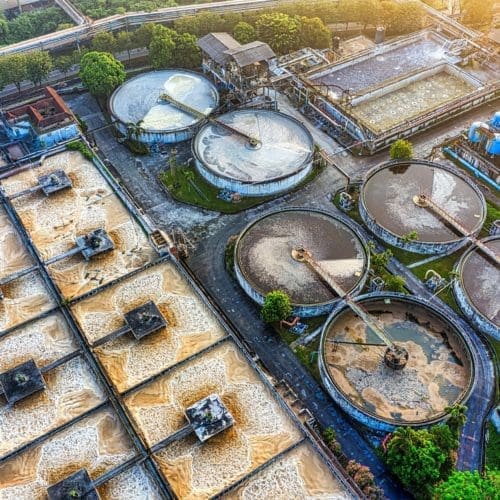Water companies face new civil penalties of up to £250 million for water pollution
October 2022October 2022
In recent months, water companies have constantly been in the news as a result of several high-profile water pollution events. The recent Environment Agency’s pollution report announced that we have seen a steady increase in pollution events with many of them being significant. Since 2013 we have seen criminal prosecutions against water companies significantly increase, resulting in fines exceeding £138 million, with a record £90 million being handed down to Southern Water.
It is therefore perhaps not surprising that the government has more stringent legislation in its sights. On 3 October 2022, the Environment Secretary announced proposals to raise the maximum civil penalty for water companies found to be polluting the environment, from £250,000 to £250 million.
These proposals are intended to act as a deterrent to help cut down on the level of water-based pollutants. It is hoped that water companies will now invest in infrastructure to reduce the rising number of pollution events. In 2021 alone, there was 62 pollution incidents labelled as ‘serious’ by the Environmental Agency (“EA”). The EA has stated that the current maximum civil penalty of £250,000 was not high enough as this will often amount to less than a Chief Executive’s salary.
The criminal courts can already impose unlimited fines (example below) for environmental offences. However, this can be a lengthy and costly process. The new proposals will give the EA the power to fine water companies directly, without the need to wait for a court to determine the penalty. The proposed increase in civil penalties is noticeably substantial and should simplify and speed up the enforcement process and be a more effective deterrent.
Anglian Water
Anglian Water (“AW”) has recently been fined a total of £1.2 million in two separate court cases after it pleaded guilty to causing poisonous and polluting matter to enter inland freshwaters without an environmental permit.
AW was ordered to pay £871,000 after a string of maintenance failures caused pollution in Cambridgeshire, Buckinghamshire and Northamptonshire between May and September 2019. After one incident, a biological survey showed dead aquatic invertebrates over an area of 1.5km. Further a build-up of “unflushable” products caused a discharge of settled sludge into treated sewage. The screen to prevent these blockages was removed in 2018 and never replaced.
In a separate court case heard at Cambridge Magistrates’ Court, AW was sentenced to pay £350,000 after a pumped sewer burst for the sixth time in five years, leading to ammonia and low oxygen levels in the water. This caused a serious risk to wildlife at the site. The court found that AW had been too slow to implement mitigation measures.
The EA’s chief executive, Sir James Bevan said that it will “pursue any water company that fails to uphold the law or protect nature and will continue to press for the strongest possible penalties for those which do not.”
Comment
It is clear that the government is taking water pollution seriously, which is perhaps unsurprising in the context of its climate change strategy and pressure from environmentalists. For example, on 3 October 2022, it was reported that 11 water companies in the UK would be fined a total of £150 million for missing targets which included sewer flooding and water supply interruptions.
We can therefore expect that the number of criminal prosecutions and civil penalties will increase until water companies implement longer term change to prevent future incidents. It does appear that water companies are already embracing the need for change – following the court decisions above, AW reported that it will be investing £800 million to help protect and improve the environment and achieve their zero pollutions goal.
However, it is also clear that if enacted, a more punitive landscape is on the horizon. Criminal prosecutions are characterized by the often-inordinate amount of time it takes for defendants to come before the court. Accordingly, the prospect of the EA being able to levy such large civil penalties directly, will be welcomed by environmentalists, and will no doubt encourage water companies to initiate further reviews of their processes for dealing with pollution incidents and their legal response to regulatory action.
The proposals to increase the civil penalty are subject to consultation and it has not yet been reported when these changes will be implemented, but it has been reported that the government is keen to push forward with its proposals.
Download PDF









